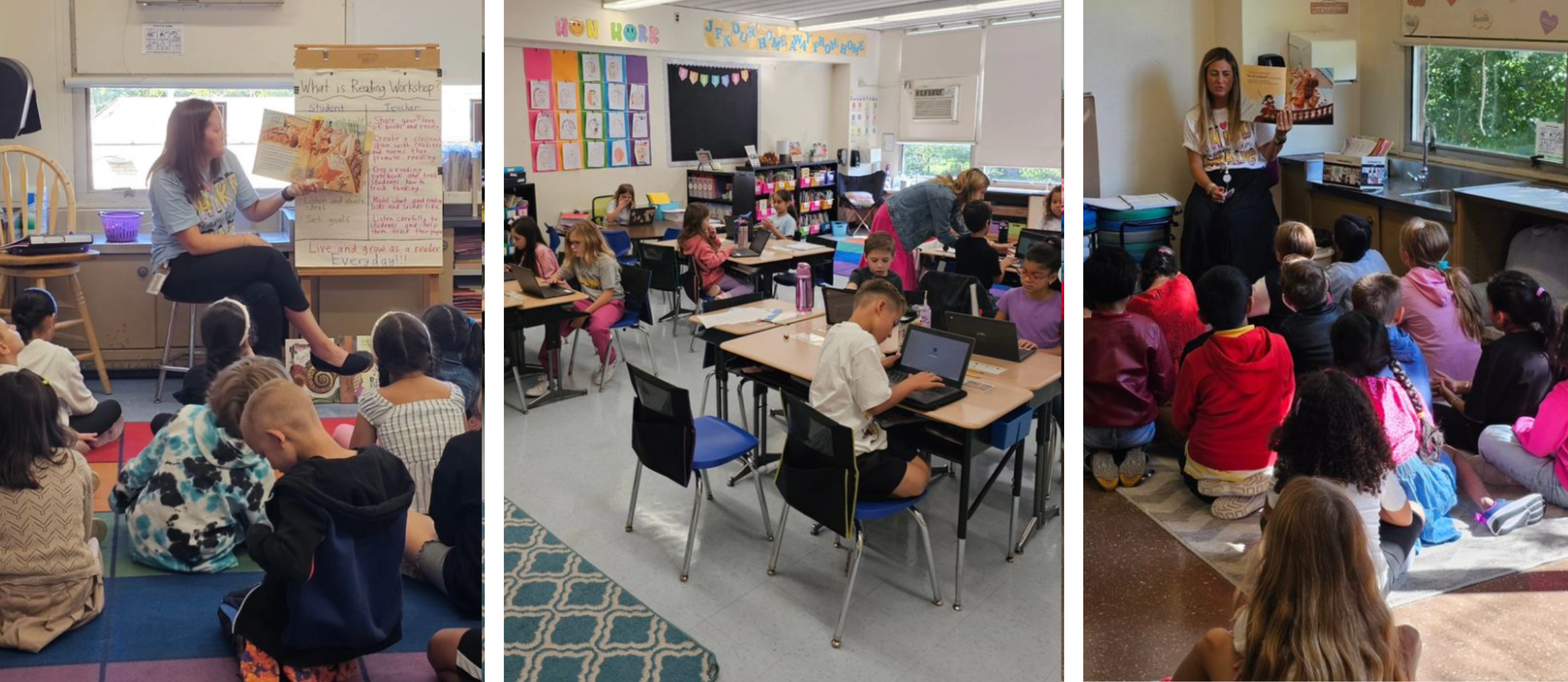Exactly How You Can Help Save Temecula Schools for Future Generations
Wiki Article
The Impact of College Environments on Academic Success and Personal Well-Being
The school atmosphere considerably influences both scholastic success and personal wellness, including components such as physical layout, class environment, and interpersonal dynamics. The layout of instructional areas, consisting of natural illumination and ergonomic furnishings, can improve trainees' concentration and convenience. The top quality of teacher-student connections and the nature of peer communications play essential roles in promoting an ambience favorable to learning and emotional support. Understanding just how these numerous variables interaction to form pupil outcomes raises important questions regarding maximizing educational settings for holistic growth. Just how can institutions tactically boost these elements to much better support their trainees?Physical Format and Design
Just how does the physical format and style of a college effect scholastic success? The arrangement and aesthetic of a college atmosphere can dramatically affect pupils' learning end results.Natural lights and efficient air flow systems are crucial in enhancing cognitive feature and decreasing absenteeism. Researches have actually revealed that class with enough all-natural light improve trainee focus and lower feelings of sleepiness. In addition, ergonomic furniture tailored to students' requirements can protect against physical discomfort, enabling for long term emphasis and involvement in academic tasks.
Access to exterior areas and visually pleasing surroundings additionally play an important function - Save Temecula Schools. Green spaces and well-maintained institution premises provide chances for physical exercise and mental relaxation, both of which are essential for keeping high degrees of academic performance. Fundamentally, a thoughtfully designed physical environment can work as a catalyst for academic quality, fostering an environment that supports both teaching and knowing
Class Ambience
A positive classroom atmosphere is fundamental to accomplishing scholastic success. An environment that promotes a sense of security, inclusivity, and common regard urges trainees to engage more proactively in their understanding procedures. The atmosphere of a classroom, including facets such as illumination, sound levels, and seating setups, can substantially affect student concentration and motivation. A well-ventilated, well-lit classroom with marginal diversions can enhance cognitive function and lower anxiety, thus advertising far better scholastic outcomes.Moreover, the classroom environment should support a society of collaboration and open interaction. When students really feel comfy expressing their concepts and asking concerns, they are more probable to involve deeply with the material and establish essential assuming skills - Save Temecula Schools. Peer interactions and group tasks can enhance understanding by providing varied viewpoints and fostering teamwork
In addition, developing clear assumptions and regular routines can create an organized atmosphere that permits pupils to focus on their researches. By lessening unpredictability and providing a foreseeable framework, pupils can much better handle their time and duties. Inevitably, a favorable class environment not just enhances academic efficiency but likewise adds to the overall well-being of pupils, preparing them for future educational and individual endeavors.
Teacher-Student Relationships
Building on the value of a favorable classroom atmosphere, the partnerships in between instructors and students play a pivotal duty in shaping academic success. A healthy and balanced teacher-student connection fosters a learning atmosphere where students really feel valued, recognized, and sustained, which dramatically improves their motivation and engagement. When trainees regard their educators as compassionate and approachable, they are more probable to get involved proactively in class and seek assistance when required, adding to a deeper understanding of the subject.
This depend on makes it possible for trainees to express their ideas and issues freely, cultivating a collaborative knowing environment. In essence, solid teacher-student relationships are a keystone of instructional success, playing an essential duty in both scholastic accomplishment and individual advancement.
Peer Interactions
Peer interactions significantly affect scholastic success by shaping a trainee's cognitive and social development. Favorable peer communications can enhance a trainee's motivation and engagement in scholastic activities through joint learning and shared support.Efficient peer communications also add to the development of crucial life abilities, such as conflict, cooperation, and interaction resolution. These social proficiencies are essential for both academic success and individual health, site web underscoring the relevance of cultivating favorable peer characteristics within the institution setting.
After-school Activities
Participating in after-school activities plays a pivotal role in a pupil's scholastic success and personal advancement. These tasks, ranging from sports groups to debate clubs, offer students possibilities to hone important abilities such as leadership, time management, and synergy. Research consistently shows that trainees that take part in extracurricular activities tend to attain greater academic performance. This connection is typically connected to the organized atmosphere and the discipline needed to stabilize both extracurricular and academic dedications.Moreover, extracurricular involvement promotes a sense of belonging and neighborhood, which is important for individual well-being. Participating in team tasks allows trainees to develop and reinforce socials media, enhancing their emotional and social intelligence. These communications are important for establishing social skills that are beneficial in both scholastic and future specialist settings.
Additionally, after-school activities give a constructive outlet for pupils to discover their interests and enthusiasms beyond the basic educational program. This exploration can result in the exploration of brand-new abilities and potential profession paths, additionally encouraging pupils to engage even more deeply in their academic job. To conclude, the role of after-school activities extends past mere leisure; they are important to cultivating an all natural instructional experience that promotes both academic success and individual development.
Conclusion
Thoughtfully made physical designs and classrooms, along with favorable teacher-student connections and constructive peer communications, substantially enhance trainee motivation and involvement. These components jointly highlight the value of producing and keeping optimum college settings for the advantage of students' personal and scholastic development.Inevitably, a positive classroom ambience not only improves scholastic performance basics but also contributes to the overall well-being of trainees, preparing them for future academic and personal endeavors.

Report this wiki page